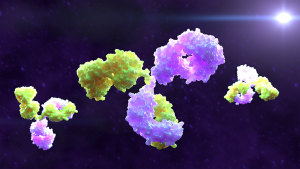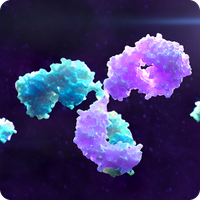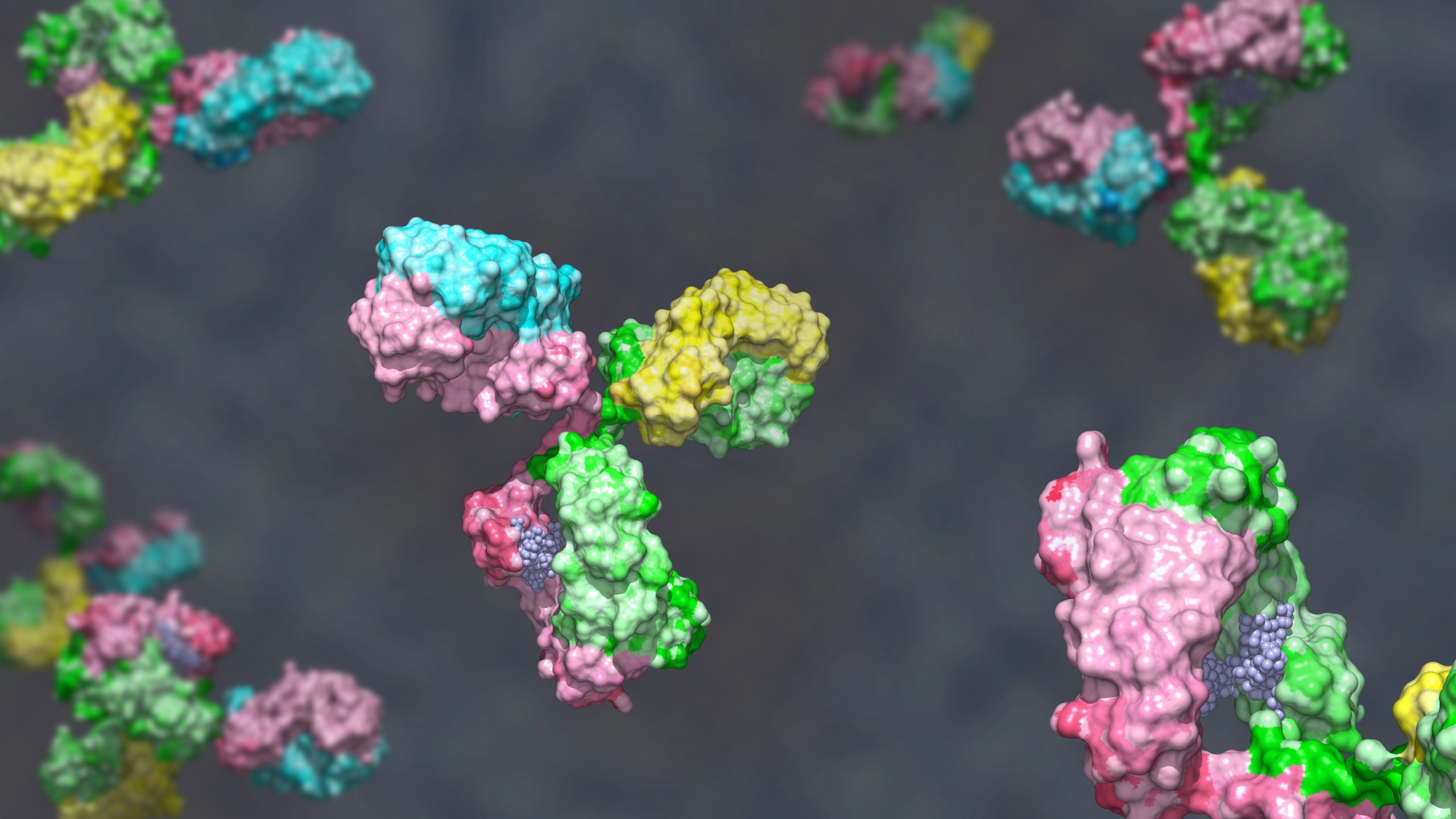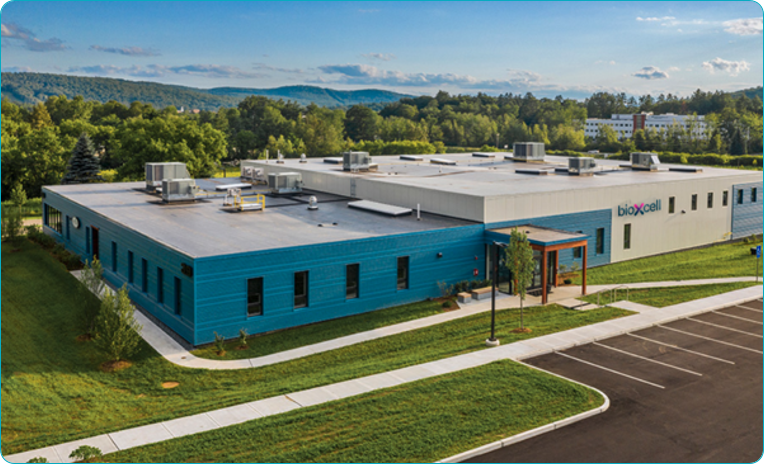Bispecific antibodies have a dual-targeting approach that is proving to be a game-changer in immunotherapeutic research and development.
The Scientist's Creative Services Team in collaboration with Bio X Cell

Bispecific antibodies transform the cancer immunotherapy landscape by optimizing opportunities for targeted treatment.
Immunotherapy research for targeted cancer treatment is evolving at a rapid pace. As scientists continue to develop novel approaches to monoclonal antibody therapy for oncological and non- oncological applications, the need to address the limitations of monoclonal immunotherapies grows. Despite the clinical approval, therapeutic use, and efficacy of various monoclonal antibodies for blood cancer treatment, their fundamental mechanism of action imposes certain shortcomings.1 For example, cancer cell receptor polymorphism, glycosylation substitutes, molecular pathway redundancies, and other inhibitory mechanisms provide a survival advantage to cancer cells and limit monoclonal antibody efficacy.2
To overcome such inherent challenges, scientists are turning to more robust molecular solutions that improve cancer cell targeting and therapeutic outcomes, among the most promising of which are bispecific antibodies. More than two hundred bispecific antibodies are at various stages of preclinical or clinical testing, with a growing list of those approved for clinical use.3
Understanding the Scientific Prowess of Bispecific Antibodies
Conventional monoclonal antibody therapies are designed to have exactly the same antigen binding regions on both arms of the Y-shaped protein, ultimately limiting efficacy to the same molecular targets. The potential of bispecific antibodies for treating cancer in a highly targeted manner lies in the unique protein engineering of these molecules. Bispecific antibodies are designed to enable simultaneous binding of two targets through protein structural variations that accommodate two antigen binding regions. The multitude of protein design options allows scientists to diversify target matching and improve anticancer accuracy and effectiveness through various signaling pathways.4
For example, bispecific antibodies that bridge T cell and cancer cell antigens through their dual binding domains can initiate a targeted immune response against cancer cells. This highly selective approach homes in on discreet cellular targets and activities, improving the potential of favorable therapeutic outcomes and minimizing off-target side effects.5 Bispecific antibodies can also address the challenge of low target expression levels that limits conventional monoclonal antibody therapeutics, by optimizing antigen binding and recycling kinetics and maximizing spatially specific antibody concentrations for longer-lasting therapeutic effects.
Precision and Power Make their Mark
As the preclinical and clinical landscape for immunotherapeutics that target cancer as well as other disorders, such as heart and autoimmune disease, grows so too does the need for flexible, reliable, and high-quality bispecific antibodies that perform consistently and efficiently. Bio X Cell's bispecific antibodies are among these, taking advantage of the vast array of structural permutations and built-in adaptability to mimic both IgG antibodies and non-IgG antibodies.
Bio X Cell's in vivo research grade antibodies undergo best practice quality testing to minimize the presence of contaminants and maximize purity for exceptional quality and reliability. Optimized for cancer immunotherapy research, these antibodies include those that promote T cell activation for spatially relevant blood and solid tumor targeting. For example, Bio X Cell's Teclistamab biosimilar bispecific antibody simultaneously binds B-cell maturation antigen on cancerous plasma cells as well as CD3 on T cells, enabling T cell-mediated cytotoxicity.
Bio X Cell's bispecific antibodies provide researchers with the confidence to interrogate basic and translational research questions with exceptional efficiency and data reliability. With a growing offering of bispecific antibody products that provide next-level precision and power, the future of immunotherapies for cancer and other disorders is brighter than ever.
References
- Chames P, et al. Therapeutic antibodies: successes, limitations and hopes for the future. Br J Pharmacol. 2009;157:220-233.
- Chames P, Baty D. Bispecific antibodies for cancer therapy: the light at the end of the tunnel?. MAbs. 2009;1(6):539-547.
- Goebeler ME, et al. Bispecific and multispecific antibodies in oncology: opportunities and challenges. Nat Rev Clin Oncol. 2024;21(7):539-560.
- Klein C, et al. The present and future of bispecific antibodies for cancer therapy. Nat Rev Drug Discov. 2024;23(4):301-319.
- Guo X, et al. Revolutionizing cancer immunotherapy: unleashing the potential of bispecific antibodies for targeted treatment. Front Immunol. 2023;14:1291836.




